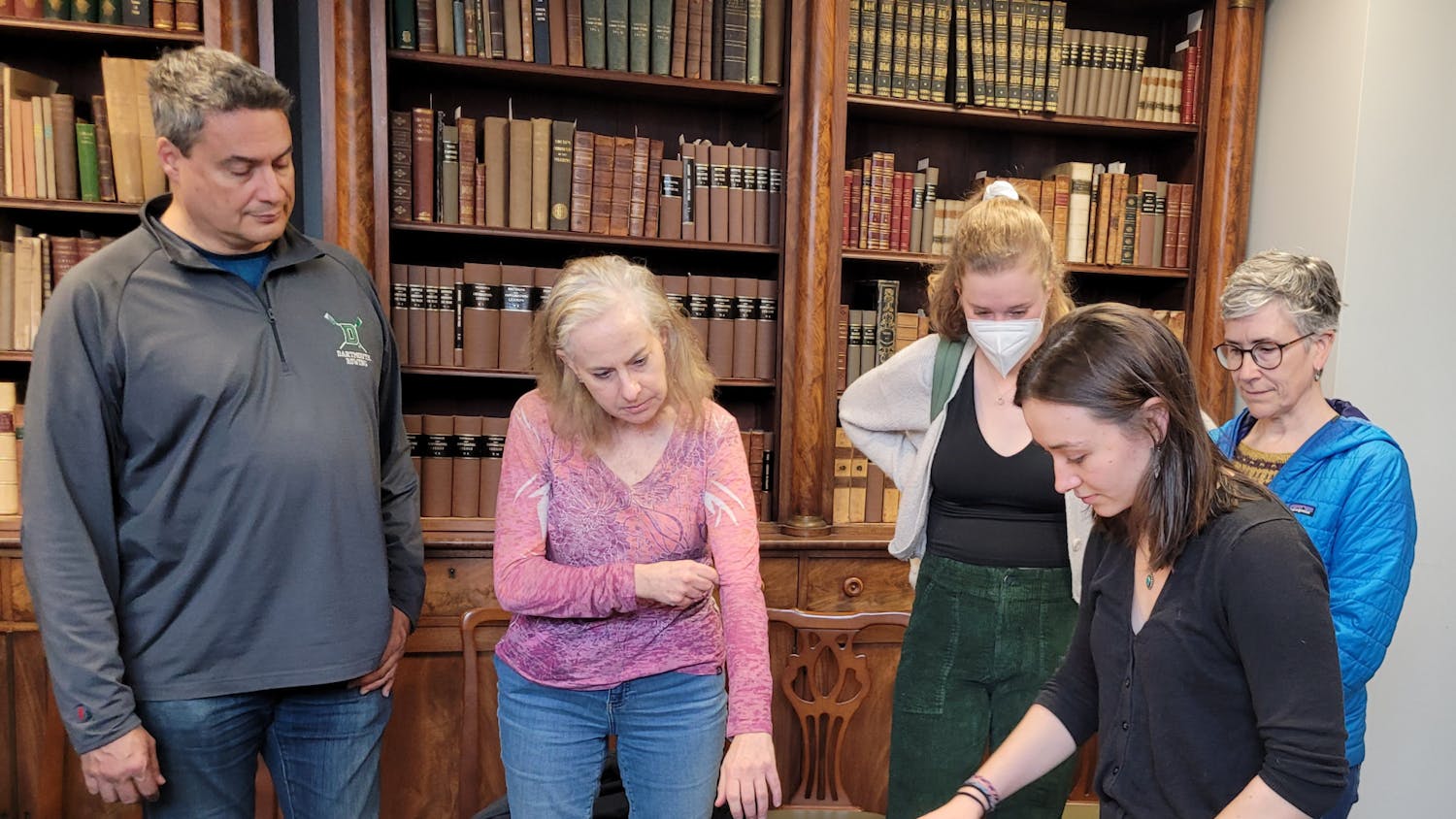The College hosted the 30th annual conference on Formal Power Series and Algebraic Combinatorics on campus last week. At the event, over 230 mathematicians from over 25 countries explored research and findings within the field of combinatorics — the branch of mathematics that deals with combinations of objects in specific sets under certain constraints — with a specific focus on algebraic combinatorics.
According to associate professor of mathematics and chair of the organizing committee for FPSAC Sergi Elizalde, who had attended past FPSAC conferences, FPSAC is the largest conference in algebraic combinatorics internationally and has been held annually since 1988. Each year, FPSAC rotates locations, and Elizalde said that the FPSAC steering committee approached him in 2015 to inquire whether Dartmouth would be interested in hosting the conference this year.
Initially, Elizalde said he was unsure of whether Dartmouth would be able to physically handle the size of the conference, in terms of beds and conference space. But the College was able to find space and was offered financial support — such as a gift from Fannie and Alan Leslie ’30 and the National Science Foundation — as well as institutional support from the mathematics department. He said that the conference was an opportunity for Dartmouth to “become better-known internationally, especially in the mathematics community.”
Elizalde used the computer game Tetris to explain the kinds of problems combinatorics addresses. Each Tetris piece has “four little squares,” Elizalde said in an interview, and combinatorics can help find a way to count the number of different ways these squares can be organized to form different Tetris pieces.
“Now if instead of four little squares together you had ‘n’ little squares for some number n, for example 10, there’s no formula that tells you how many different pieces you can form… So finding a formula would be a problem in combinatorics,” Elizalde said.
Within the larger realm of combinatorics, algebraic combinatorics focuses specifically on how algebra problems can be solved using combinatorics and how combinatorics problems can be solved using algebra, Elizalde said.
While the conference’s focus was on algebraic combinatorics, speakers were invited to present on research that went beyond just that specific subset of the field. Ioana Dumitriu, a professor of mathematics at the University of Washington, Seattle and one of the invited speakers for the conference who studies numerical analysis and random matrix theory, said she tailored her talk to give an idea of where combinatorial tools are helpful and what kinds of results can be obtained for further use in science and engineering.
Specifically in regard to her work, Dumitriu said in an interview that combinatorics can help obtain statements about random matrices and that these findings can be applied to obtain algorithms and matrix completion. This can become useful for machine learning, signal processing or coding theory. She described how this is just one of the ways combinatorics can be applied, saying that matrices are like the intermediary step between combinatorics and other disciplines, such as machine learning or “big data.”
“Because matrices have applications that are very broad and therefore, twice removed, combinatorics turns out to be extremely handy,” she said.
Coming from a different field, Dumitriu said the conference was eye-opening with respect to what is available and out there and that others seemed to find her work as doing the same for them.
“It was also, I think, an eye-opener for a number of people working combinatorics who came to me afterwards … It was very good to see that information sharing was going both ways,” she said.
In addition to the information sharing, Dumitriu said that another valuable aspect of conferences is the setting they provide for new researchers to network with current experts in the field — as well as with each other, because they will be the “next generation.”
One of the newer researchers at the conference was Justin Troyka GR’18, who finished his Ph.D. at the College this year and presented his thesis research on the descent structures in permutations and how they interplay with other properties within the permutations.
Troyka said that the conference gave him an opportunity to see what people in combinatorics were working on and that the diversity of different approaches and different types of research being done within this already “narrow” field of work struck him.
Furthermore, Troyka said that while he was feeling a bit “burnt out” after his thesis, the conference gave him an idea of the kinds of questions to ask moving forward.
“It revitalized me. It gave me an idea of what kinds of questions people are thinking about and what kinds of ways my skills can sort of fit into that framework of what people care about. [It also prompted me to] try and answer questions that my community is going to want answers to,” he said.



